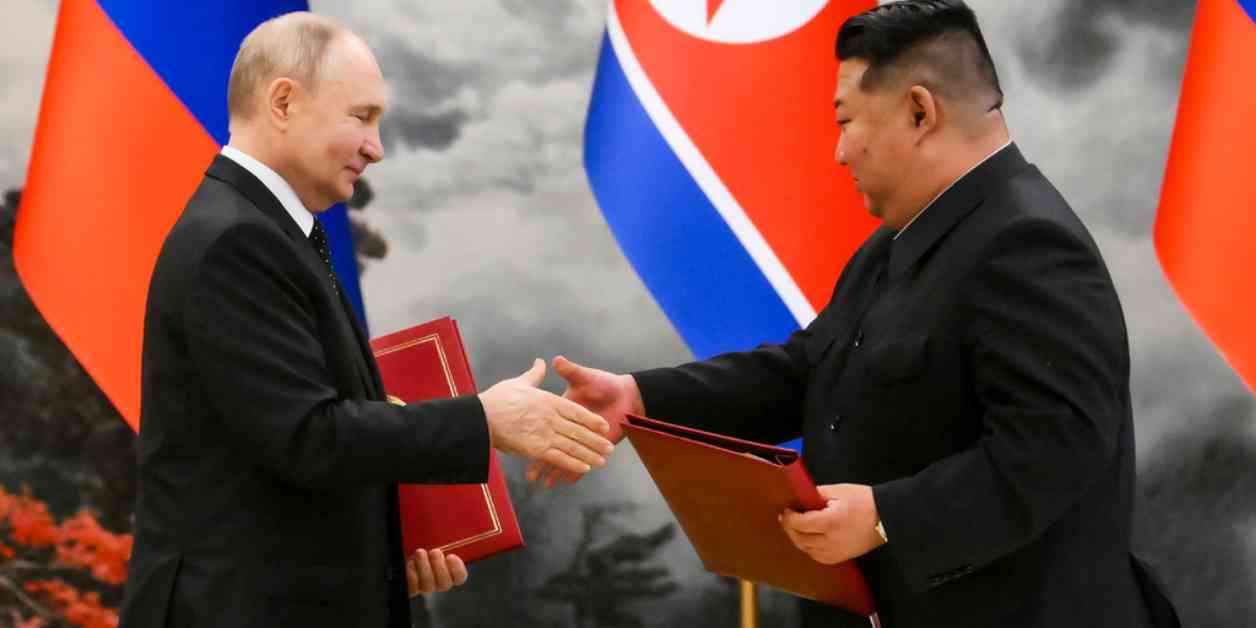China has been notably quiet on the recent defense pact formed between Russia and North Korea, causing concerns about a potential shift in regional power dynamics. Experts suggest that Chinese leaders are worried about losing influence over North Korea and the resulting instability on the Korean Peninsula.
The United States has expressed worries about the agreement violating U.N. Security Council resolutions and impacting global stability. Without a clear response, China seems to be maintaining a distance as Russia and North Korea strengthen their ties through this pact, potentially altering the balance of power among the three authoritarian states.
The lack of a robust Chinese reaction has raised eyebrows, with some experts suggesting that Beijing may be unsure of how to proceed. While some in Beijing may see the Russia-North Korea partnership as a way to challenge America’s global dominance, there is also discomfort over the prospect of losing influence to Russia, dealing with a nuclear-armed neighbor, and importing European conflicts into Asia.
Despite these concerns, China has not publicly voiced its apprehensions. The Chinese Foreign Ministry spokesperson declined to comment on the agreement, emphasizing that it is a matter between two sovereign nations. This silence may stem from a desire not to drive North Korea further into Russia’s arms or to complicate regional dynamics further.
The potential implications of Russia aiding North Korea’s weapons program with advanced technology are also a cause for concern. China holds leverage over both Russia and North Korea and could potentially limit the extent of their collaboration if deemed necessary. The recent meeting between Putin and Kim underscores the intricate web of political and military relationships in East Asia, where China plays a pivotal role in influencing both North Korea and Russia.
The evolving landscape in East Asia has prompted fears in the U.S. that China, as the world’s second-largest economy, could challenge the existing global order by aligning itself with countries like Russia, North Korea, and Iran. However, Beijing has refuted these claims, emphasizing the need to maintain flexibility in its international partnerships.
The current situation highlights the delicate balancing act that China must navigate to safeguard its national interests while avoiding a new Cold War scenario. Aligning too closely with North Korea and Russia could undermine China’s relationships with Europe, Japan, and South Korea, leading to unintended consequences.
As Putin and Kim deepen their ties, there is a risk that China may lose its influence in the region and emerge as the “biggest loser.” This shifting dynamic could grant North Korea more autonomy to act without regard for Beijing’s interests, potentially creating instability when China seeks stability.
In conclusion, China’s reticence in responding to the Russia-North Korea defense pact underscores the complex geopolitical calculations it must make to protect its interests in the region. While the evolving relationships between key players in East Asia raise concerns about power shifts, China’s strategic silence may be a calculated move to preserve its influence and avoid unintended consequences in a rapidly changing geopolitical landscape.


















